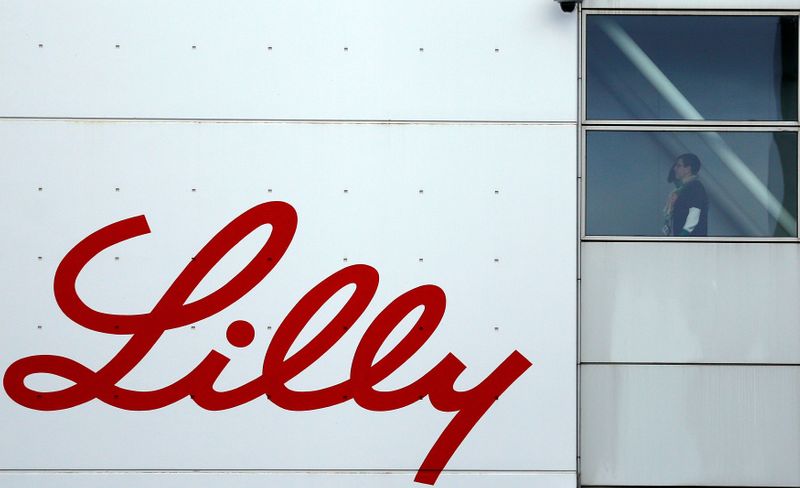By Saumya Joseph and Carl O'Donnell
(Reuters) - Eli Lilly and Co (N:LLY) raised the top-end of its 2020 profit forecast on Thursday and beat quarterly estimates, benefiting from customers stocking up medicines such as diabetes drug Trulicity amid the coronavirus pandemic.
Shares of the drugmaker rose 2.7% to $161 in early trading as first-quarter revenue got a nearly $250 million boost from increased demand for Lilly's insulin products, Trulicity and psoriasis drug Taltz during the lockdowns.
This benefit, however, would largely be reversed over the course of 2020, the company said and warned of a negative impact to its U.S. drug prices in a coronavirus-battered economy.
Long-term U.S. unemployment rates would reduce the demand for drugs and even cut federal reimbursement for Lilly's key drugs, said Citi Equities analyst Andrew Baum, adding there are cheaper options to Trulicity and Taltz.
As patients shift from commercial insurance to federal insurance plans such as Medicaid, Lilly could see a change in net pricing, Chief Executive Officer David Ricks told Reuters.
Meanwhile, with hospitals focus on treating COVID-19 patients, Lilly has had to delay many of its clinical trials, a move that could hurt future revenue and limit patient access to experimental treatments.
"The economic and healthcare consequences of this pandemic are uncertain and could negatively affect our financial results later in 2020 and beyond due to reduced non-COVID healthcare activities and global economic challenges," Chief Financial Officer Josh Smiley said in a statement.
The company forecast full-year adjusted profit per share of between $6.70 to $6.90, a 10 cent boost to the top-end, citing more demand for its newer drugs and said it expects clinical trials to resume in the second half of the year.
"While we could see some negative impact to drug pricing from COVID-19, we see this as fairly manageable and far more muted than the impacts being experienced elsewhere in the broader economy," J.P. Morgan analyst Chris Schott said.
Top-selling drug Trulicity brought in 40% higher revenue of $1.23 billion, helping drive a 15% jump in total quarterly revenue to $5.86 billion, which topped Wall Street estimates of $5.51 billion.
Excluding items, Lilly earned $1.75 per share, above analysts' average estimate of $1.48 per share, according to IBES data from Refinitiv.

Net income fell nearly 66% to $1.46 billion, or $1.60 per share from a year earlier when it recorded $3.68 billion gain from its spin-off of animal health unit Elanco (N:ELAN).